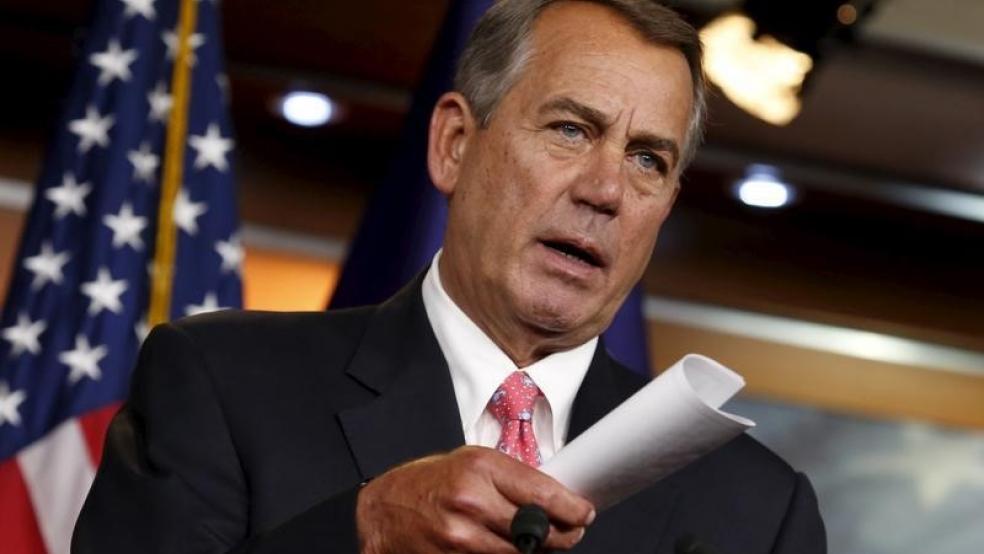WASHINGTON (Reuters) - U.S. House of Representatives Speaker John Boehner said on Tuesday that prospects were good for passage of a permanent fix to Medicare's flawed doctor-pay formula, a move that would spare physicians from impending pay cuts.
The Republican leader said the House was intent on avoiding another short-term repair like the ones resorted to previously.The plan's prospects brightened in the Senate, as well, when Democratic Leader Harry Reid said he would look at the bipartisan House proposal, which would change the way doctors are reimbursed for Medicare costs. It was introduced earlier on Tuesday by Boehner and House Democratic Leader Nancy Pelosi.Last week, through a spokesman, Reid expressed opposition to abortion restrictions on community health centers in a draft of the proposal.But after the bill was introduced on Tuesday and House Democrats said the abortion restrictions will expire when the health centers' funding does, Reid said he was willing to "wait until we see it" before deciding his position.A House vote on the bill is expected Thursday. Though potential pitfalls remain, the signals from top lawmakers suggested a solution may be near to a long-standing problem that would also show bipartisan agreement is possible in this new Congress. "I feel good about where we are on the doc fix," Boehner told reporters, referring to the proposals' nickname. He said talks with Pelosi had been productive, open and honest, and had created a "very solid package."The proposal would replace the current doctor payment formula with one that has a stronger focus on quality of care.The old formula linked doctors' pay increases to economic growth, but it has been overridden by Congress 17 times because it repeatedly threatened deep cuts in doctors' pay.Congress needs to take action by April 1 to avoid having hundreds of thousands of doctors face a 21 percent cut in their reimbursements. Medicare serves 54 million elderly and disabled people.Another potential pitfall is that Senate Democrats favor a four-year extension of funding for the Children's Health Insurance Program, and the House proposal extends it for just two years.The House doc fix legislation would cost an estimated $200 billion over a decade. Lawmakers have worked out how to pay for only about $70 billion, in part by means testing Medicare beneficiaries so people with higher incomes pay more. (Reporting by Susan Cornwell, additional reporting by Emily Stephenson; editing by Kevin Drawbaugh, Bill Trott, Leslie Adler and Christian Plumb)Medicare doctor pay fix prospects brighten in Congress

© Yuri Gripas / Reuters



